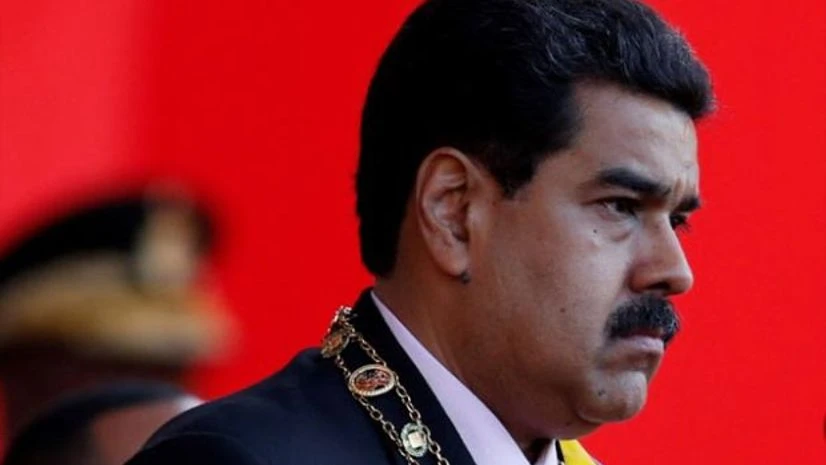Venezuela braced for new protests today after a controversial election for an assembly to rewrite the constitution unleashed a wave of unrest that left 10 people dead.
Opponents of embattled President Nicolas Maduro vowed another day of nationwide marches, defying an intensifying crackdown on protests that have left more than 120 people dead in four months.
Flouting international condemnation — including the threat of new sanctions by US President Donald Trump's administration — Maduro meanwhile claimed victory in Sunday's election, citing an official turnout figure of 41.5 per cent.
The leftist leader encouraged the new "Constituent Assembly" to wield its vast powers to scrap opposition lawmakers' immunity from prosecution as one of its first acts.
Protesters attacked polling stations and barricaded streets around the country yesterday, drawing a bloody response from security forces, who opened fire with live ammunition in some cases.
Despite the unrest and an opposition boycott, the National Electoral Council said there had been "extraordinary turnout" of more than eight million voters.
More From This Section
Dressed in bright red, his fist clenched and face beaming, Maduro hailed it as a win in a speech to hundreds of cheering supporters in central Caracas early today.
"It is the biggest vote the revolution has ever scored in its 18-year history," he said, referring to the year his late mentor, Hugo Chavez, came to power.
"What the hell do we care what Trump says?"
Members of the new assembly will include his wife Cilia Flores, his pugnacious right-hand man Diosdado Cabello, and other staunch allies.
The socialist president is gambling his four-year rule on the 545-member assembly, which will be empowered to dissolve the opposition-controlled congress and rewrite the constitution.
There was a blistering international condemnation of the vote, led by Washington.
The constituent assembly aims to "undermine the Venezuelan people's right to self-determination," US State Department spokeswoman Heather Nauert said in a statement.
It threatened further "strong and swift" sanctions on Maduro's government after the US slapped sanctions on 13 current and former officials last week.
The election was also condemned by the European Union, Canada and Latin American powers including Argentina, Brazil, Colombia and Mexico.
Senior opposition leader Henrique Capriles called on Venezuelans to continue defying the deeply unpopular Maduro with new protests against the election and the "massacre" he said accompanied it.
"We do not recognise this fraudulent process," he said, calling for nationwide marches Monday at noon and a mass protest in Caracas on Wednesday, the day the new assembly is due to be installed.
Maduro has banned protests over the vote, threatening prison terms of up to 10 years.
The death toll in Sunday's protests included a candidate for the new assembly, a regional opposition leader, two teenage protesters and a soldier in the western state of Tachira, which saw some of the worst violence.
In eastern Caracas, seven police were wounded when an improvised explosive targeted their motorcycle convoy.
National guard troops used armoured vehicles, rubber bullets and tear gas to disperse protesters blocking roads in the capital and other cities.
According to polling firm Datanalisis, more than 70 percent of Venezuelans oppose the idea of the new assembly -- and 80 percent reject Maduro, whose term is meant to end in 2019.
Venezuelans also protested in Miami, Madrid and various Latin American cities.
The number of Venezuelans living abroad has soared as the once-booming oil producer has descended into a devastating economic crisis marked by shortages, runaway inflation, riots and looting.
The US envoy to the United Nations, Nikki Haley, condemned the vote as a "sham" -- a word also used by Britain's junior foreign minister, Alan Duncan, and many experts.
"The vote means the end of any trace of democratic rule. Maduro's blatant power grab removes any ambiguity about whether Venezuela is a democracy," said Michael Shifter, head of the Inter-American Dialogue research centre.
(Only the headline and picture of this report may have been reworked by the Business Standard staff; the rest of the content is auto-generated from a syndicated feed.)

)
